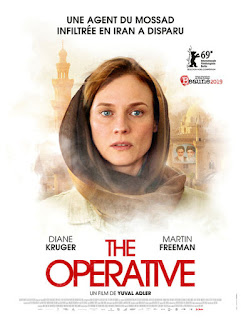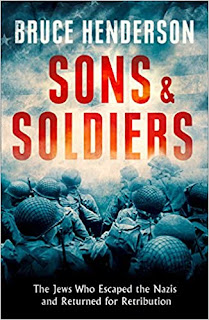I am for a long time very conflicted about when exactly someone may consider his or her life experience rich enough for writing a memoir. I am not radically opposed to the idea that someone before the retirement age has a life eventful enough to turn it into a 1 person personal story, but given the amount of such accounts I came across in the last years and months, I will be very cautious in considering that all those experiences are worth writing about and nevertheless reading them.
After such a skeptical, arrogant even start, let´s talk the book. Lot Six by David Adjmi is a finely written account of the author´s struggle in and out the very conservative - not necessarily strictly religious in the classical Orthodox sense of the world - Syrian-Jewish community in NYC. In my experience, the Syrians are one of the most insular Jewish communities, with a very different and highly exclusivistic attitude towards other Jews, for historical and sociological reasons that I will maby discuss on another occasion.
The book is not one of those Off-the Derech books, about an Orthodox Jew that left the fold for becoming an atheist, opposed to his previous community. Instead, it is an account of a process of coming at terms with an identity, sexual as well, reinventing a new destiny, but without necessarily opposing the old world. From this perspective, the story appeals too much to audiences that are ready for this kind of accounts, without a dramatic ending - he still stays in contact with his family, although he is dismissed and run away himself from the yeshivish world.
Adjmi remains connected to his disfunctional family which struggles with money. His family is broken way before the official separation of his parents: his father is a con, he and his siblings are struggling with depression and his mother is rather psychologically absent. ´People in my family talk about killing themselves all the time´.
Although the family is not strictly religious, rather normally Jewish, they sent him to a yeshiva, where his religious experiences are rather peculiar. There is anything special about his Jewish heritage that remains his background story because, as we many of us know, you cannot divorce it easily, if ever.
Personally, I´ve found the part dedicated to the search for his own literary voice more interesting and revelatory. It made me curious to read some of his plays that are inspired by his personal encounters and life experiences. But as much as I consider it is important to share a personal experience and story of reinvention and transformation, eventually helping other people going through similar experiences to raise and find their voices, sometimes I felt that all the information was enough for a long article at the first person, but definitely too long for a full book. As I had access to the book in audiobook format, I´ve found the book experience even longer...
Rating: 3 stars
























